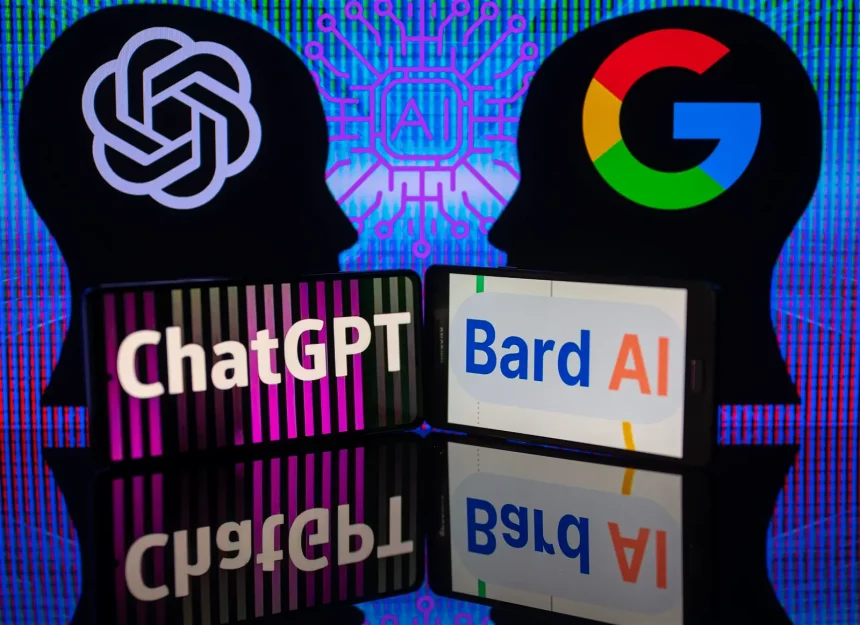Google launched its AI chatbot Bard in the European Union and several more nations on Thursday, entering a key market in its race against Microsoft-backed ChatGPT after a delay over data privacy concerns.
The US firm unveiled Bard in February but postponed its June release in the 27-nation EU following queries by the Irish Data Protection Commission (DPC), as Ireland is home to the European headquarters of US tech giants.
In addition to the EU, Bard was rolled out in Brazil and about a dozen other countries on Thursday.
Bard is “now available in most of the world, and in the most widely spoken languages,” Bard’s product lead Jack Krawczyk and vice president Amarnag Subramanya wrote in a blog.
“As part of our bold and responsible approach to AI, we’ve proactively engaged with experts, policymakers and privacy regulators on this expansion,” they said.
The company said it would incorporate user feedback and take steps to protect people’s privacy and data as it broadens access to Bard.
Graham Doyle, the spokesman and deputy commission of the Irish data privacy watchdog, said Google had planned to make Bard available in the EU in June but paused it following the DPC’s queries.
Ahead of Thursday’s launch, Google made a “number of changes” including “increased transparency and changes to controls for users,” Doyle said in a statement.
“We will be continuing our engagement with Google in relation to Bard post-launch,” he said.
“Google have agreed to carrying out a review and providing a report to the DPC after three months of Bard becoming operational in the EU.”
He noted that the European Data Protection Board set up a task force earlier this year to look at issues related to AI.
Italy blocked ChatGPT for a month in March over privacy concerns.
– Excitement and concerns –
Google is seeking to catch up to rival Microsoft, which has rushed to integrate ChatGPT-like powers in a wide array of its products, including the Bing search engine.
With Thursday’s rollout, Bard can now be used in over 40 languages including Arabic, Chinese, German, Hindi and Spanish. It was previously available in three languages — English, Japanese and Korean.
Google also announced new features, including receiving audio responses from Bard or answers in five different styles: simple, long, short, professional or casual.
Another new feature allows users to upload photos that Bard can analyse for information.
The rise of AI has raised both excitement and concerns about its potential to improve or replace tasks done by humans.
AI tools have shown in recent months the ability to generate essays, create realistic images, mimic voices of famous singers and even pass medical exams, among a slew of uses.
But there are also worries about the possibility that chatbots could flood the web with disinformation, that biased algorithms will churn out racist material, or that AI-powered automation could lay waste to entire industries.
– ‘Extinction’ fears –
Experts — even the founder of ChatGPT-maker OpenAI, Sam Altman — have warned about the potential existential risks that the technology poses to humanity.
Altman and dozens of other specialists signed a statement in May urging global leaders to reduce “the risk of extinction” from AI.
But the warnings have not stopped the rapid development of AI.
Tesla and Twitter owner Elon Musk, who has issued his own warnings about the risks, launched an AI company named xAI on Wednesday.
The xAI website said Musk would run the company separately from his other companies but that the technology developed would benefit those businesses, including Twitter.
Last month, the European Parliament backed a draft law that will be the basis for the world’s first comprehensive rules for AI.
It includes specific provisions for generative AI systems, such as ChatGPT and Dall-E, capable of producing text, images and other media.
The parliament and the EU’s member states will negotiate on the regulation before it is approved and the bloc wants to strike a deal by the end of the year.
The rules stipulate that AI-generated content must be declared as such and bans some AI including real-time facial recognition systems.



